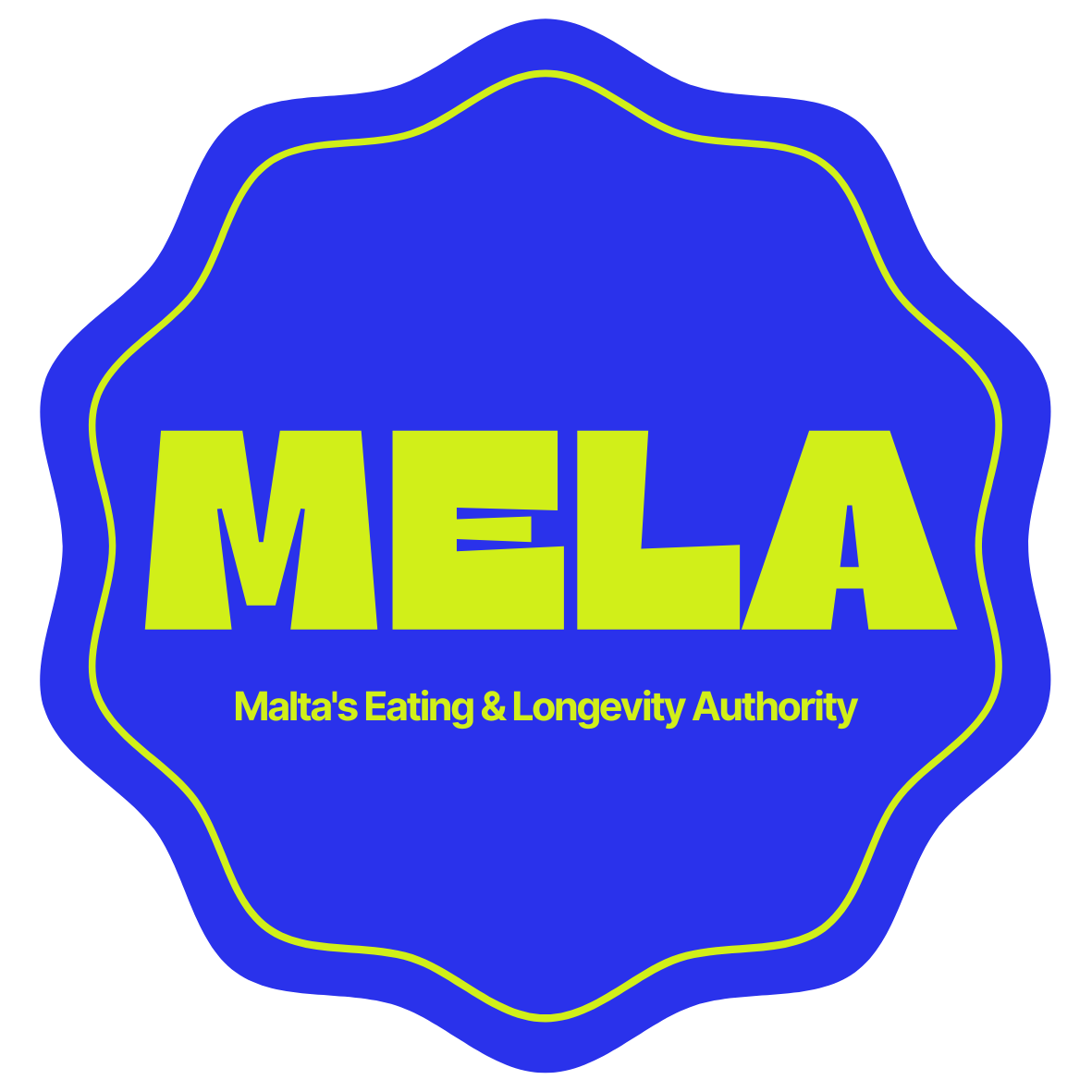Is the food served on Maltese-flagged ships contributing to seafarer health or compromising their lifespan? The answer might shock you. Although Malta prides itself on its Mediterranean culinary tradition, hidden gaps in nutritional quality onboard could still leave maritime workers struggling with chronic health conditions. Here’s how Malta has transformed its maritime welfare laws and incorporated the Mediterranean diet to reshape seafarer food in 2026.
Why Seafarer Food Matters More Than You Think
Seafarers face unique challenges when it comes to nutrition. Extended periods at sea can result in monotony, unhealthy eating patterns, and limited physical activity, making them prone to obesity, hypertension, diabetes, and stress-related illnesses. A 2023 maritime health study revealed that nearly 38% of global seafarers report issues related to poor diet aboard ships, ranging from nutritional deficiencies to excessive calorie consumption.
Malta, boasting one of the largest shipping registries globally, stands at the forefront of setting higher legal standards for seafarer food. Thanks to updated legal mechanisms like the Merchant Shipping (Maritime Labour Convention) (Amendment) Rules, 2026, shipowners on Maltese-flagged vessels must now provide meals that are both nutritious and cost-free, giving seafarers access to healthy, balanced diets essential for long-term well-being.
For locals and tourists intrigued by healthier meals, explore these Mellieħa fine dining options that embody the Mediterranean diet’s longevity benefits.
Malta’s Legal Standards for Seafarer Food
Key Amendments from 2026
Malta’s updated regulations under the Merchant Shipping Rules emphasize health, hygiene, and nutritional quality onboard. Here’s how these new standards are reshaping seafarer food:
Balanced Nutrition: Meals onboard Maltese ships must align with dietary guidelines inspired by Mediterranean dietary patterns, ensuring adequate protein, fiber, essential fats, and micronutrients.
Mandatory Hygiene Compliance: Shipowners must maintain state-of-the-art kitchens adhering to international sanitation protocols.
Financial Protections: Insurance policies now cover wellness losses tied to inadequate meal provisions, making shipowners accountable for the quality and frequency of supply.
Welfare Integration: Alongside food standards, there’s a push for improving recreational facilities to reduce stress, a key complement to healthy eating habits.
Inspired by Malta’s culinary traditions? Check out these restaurants perfect for family-friendly dining in Mellieħa that emphasize vibrant, fresh Mediterranean ingredients.
.png)
The Mediterranean Diet: A Lifesaver at Sea
Malta’s seafarer food laws are steeped in Mediterranean diet principles, widely regarded as one of the healthiest dietary patterns globally. With a foundation of local vegetables, olive oil, legumes, fresh seafood, whole grains, and moderate wine consumption, the diet offers unmatched disease prevention benefits.
Proven Health Benefits of the Mediterranean Diet for Seafarers
- Reduced Chronic Disease Risks: Studies from the Mayo Clinic reveal that the Mediterranean diet lowers rates of cardiovascular disease by 30% and diabetes by 50%, both major concerns for sedentary seafarers.
- Immune Boosting Properties: High levels of antioxidants found in Mediterranean staples like tomatoes and olive oil improve immunity, critical for long voyages where infections may spread rapidly.
- Weight Management: Incorporating fiber-rich ingredients like lentils and chickpeas helps combat obesity, a condition affecting nearly 25% of global seafarers.
- Mental Health: Anti-inflammatory nutrients from seafood and nuts reduce depression and anxiety, common among isolated maritime workers.
Insider Tips for Crafting Balanced Seafarer Meals
Even within tight constraints, crew chefs on Maltese-flagged ships can adopt these strategies:
Focus on Meal Prep Variety: Rotate meals weekly based on Mediterranean core recipes (e.g., grilled fish, vegetable-rich stews, and olive-oil-based dressings).
Use Local Maltese Ingredients: Leveraging fresh produce from Malta enhances flavor while boosting nutrient density. For example, Maltese tomatoes have 45% higher lycopene than average imported varieties, as per Mediterranean culinary studies.
Avoid Exorbitant Salt Intake: Replace excessive salt with herbs like basil, oregano, or thyme for added health benefits.
Looking for Mediterranean-inspired meals outside the maritime world? Check these romantic dining venues in Mellieħa.
Seasonal Meal Plans: Optimizing Nutritional Intake
Spring Special: Detoxify with ingredients like artichokes and asparagus, perfect for rebooting liver health.
Summer Delights: Hydrate with chilled gazpacho and fresh watermelon salads, combating dehydration under summer heat.
Winter Basics: Immune-boost with warming spices like fresh garlic coupled with hearty stews.
.png)
Shocking Stats & Solutions: Seafarer Diets Worldwide
- Seafarers face a shocking 34% higher prevalence of metabolic disorders due to poor-quality diets onboard, according to maritime research platforms.
- Mediterranean integration reduces inflammation markers by nearly 70% over 3 months, as shown in Wiley Medical’s Mediterranean Diet trials.
These trends reinforce Malta’s proactive stance in aligning seafarer food practices with its cultural culinary ethos.
Longevity Recipes You Can Implement Today
Mediterranean Power Bowl
- Ingredients: Quinoa, spinach, feta cheese, roasted chickpeas, lemon-tahini dressing
- Nutrition Breakdown: 450 calories, 20g protein, rich in fiber and omega-3s
Try similar dishes at Malta-based wellness-centered restaurants like Adura.
Herbed Lemony Salmon
- Ingredients: Wild salmon, dill, roasted garlic, steamed broccoli, olive oil drizzle
- Nutrition Breakdown: 400 calories, 35g protein, magnesium-rich broccoli improves digestion.
The Evolution of Seafarer Food in Malta
Looking ahead, AI-powered platforms like MELA AI may further revolutionize meal personalization onboard ships.
Future Trends in Malta’s Seafarer Health:
- Real-Time Meal Quality Monitoring: AI algorithms tracking nutritional data for every onboard meal served.
- Sustainability Meets Wellness: Greater reliance on locally-sourced produce to cut waste and optimize nutrients.
Summary
Malta’s bold 2026 maritime reforms ensure that seafarer food aligns with Mediterranean diet insights, making vessels under its flag leaders in maritime health policies worldwide. Widespread adaptation of these principles not only improves seafarer well-being but also elevates Malta’s global regulatory footprint. By blending cultural culinary traditions with cutting-edge nutritional science, Malta creates a holistic food ecosystem benefitting both its maritime workforce and its visitors.
For everyday diners intrigued by nutrition-driven experiences, explore more top health-focused restaurants embodying these principles locally in Mellieħa, Valletta, or Sliema venues.
Check out most popular MELA AI articles:
The Complete Guide to Low-Calorie and Weight Management Restaurants for food lovers in Malta (2026)
The Complete Guide to Mediterranean Diet Restaurants for food lovers in Malta (2026)
The MELA Index: How Malta is Revolutionizing Restaurant Discovery to Combat Europe’s Worst Obesity Crisis
FAQs on Healthy Seafarer Food in Malta and the Mediterranean Diet
Why is seafarer food quality so important?
Seafarer food plays a vital role in ensuring the physical and mental well-being of maritime workers, many of whom spend extended periods at sea. Poor food quality can contribute to chronic health issues like obesity, hypertension, diabetes, and even mental health challenges such as stress and depression. Proper nutrition is essential for maintaining the energy levels, immune function, and mental resilience required to perform their demanding jobs. Malta has taken the lead in addressing these challenges through its updated Merchant Shipping Rules (2026), mandating nutritious and cost-free meals onboard Maltese-flagged ships. By aligning these regulations with Mediterranean diet principles, Malta tackles both immediate nutritional needs and long-term health risks, benefiting both seafarers and the broader maritime industry.
What does Malta’s 2026 maritime labor law require shipowners to provide regarding food?
Malta’s updated Merchant Shipping (Maritime Labour Convention) (Amendment) Rules, 2026 require shipowners to provide:
- Balanced Nutrition: Meals must meet international dietary standards, emphasizing nutrient-rich food.
- Hygiene Compliance: Onboard kitchens must follow stringent sanitation protocols.
- Accountability for Quality: Insurance policies must cover wellness losses if meal quality is inadequate.
- Free of Charge Provisions: Nutritious meals must be supplied without cost to the crew.
These amendments are not merely regulatory formalities; they reflect a commitment to holistic seafarer welfare. This proactive approach positions Malta as a global leader in maritime labor legislation.
How does the Mediterranean diet support seafarer health?
The Mediterranean diet is renowned for its wide array of health benefits and is considered ideal for seafarers who often face sedentary work, high stress, and limited access to fresh food. Its key components include:
- Cardiovascular Health: Rich in olive oil, nuts, and omega-3s, the diet reduces cardiovascular disease risk by 30%.
- Stable Blood Sugar Levels: Legumes and whole grains minimize diabetes risk.
- Weight Management: High fiber and low refined sugar promote satiety and prevent obesity.
- Mental Health: Anti-inflammatory fatty acids from seafood help reduce anxiety and depression.
Malta utilizes its cultural connection to this diet to transform onboard catering, effectively making the Mediterranean diet a cornerstone of health for seafarers on its flagged vessels.
What role does seasonal dining play in Malta’s approach to seafarer food?
Seasonal dining is central to Malta’s strategy for healthy seafarer meals, emphasizing ingredients that are fresher, more nutritious, and environmentally sustainable. Examples include:
- Spring: Cleansing meals with artichokes and asparagus.
- Summer: Light, hydrating dishes like gazpacho and watermelon salads.
- Winter: Immune-boosting options such as hearty, garlic-infused stews.
These seasonal shifts not only maximize nutrition but also reduce monotony for crew members, enhancing their overall dining experience. Seasonal meal plans are crucial for maintaining morale among seafarers, a role Malta fulfills by blending practical logistics with its Mediterranean culinary heritage.
How does MELA AI promote healthy restaurant options for locals and tourists in Malta?
MELA AI is Malta’s premier platform for discovering restaurants committed to health-conscious dining. By awarding top eateries with the MELA sticker, the platform ensures diners can identify establishments offering Mediterranean-inspired, nutritious meals. For example, restaurants with the MELA certification use fresh, locally sourced produce and sustainable preparations that mirror the same values as Malta’s seafarer food laws. The platform also provides:
- Restaurant Listings: Find options for fine dining, family-friendly venues, and vegetarian dishes.
- Nutritional Insights: Learn about menu offerings tailored for health.
- User-Driven Ratings: Explore feedback from locals and tourists.
To discover health-conscious dining establishments, visit the MELA AI directory.
How can seafarer chefs optimize meal preparation within onboard constraints?
Seafarer chefs, working within the unique limitations of shipboard kitchens, can still provide balanced, flavorful meals by following several strategies:
- Incorporate staple Mediterranean ingredients like olive oil, legumes, and fish for their long shelf life and high nutrient density.
- Rotate Menus Weekly: This keeps the diet varied and prevents boredom, a common issue at sea.
- Minimize salt and processed foods, using herbs and spices instead to enhance flavor and health benefits.
- Focus on Storage Efficiency: Use techniques like freezing fresh produce onboard to ensure ingredient availability.
These small, practical steps align with Malta’s legal requirements and further enhance crew satisfaction and wellness.
Can tourists experience the same Mediterranean-inspired cuisine in Malta?
Absolutely! Malta’s local dining scene thrives on its Mediterranean roots, with many restaurants offering dishes based on fresh seafood, whole grains, and seasonal vegetables. Tourists can easily sample these healthful options by exploring MELA-certified eateries. Whether you’re dining in Valletta, Mellieħa, or Sliema, the focus on fresh, locally sourced ingredients mirrors the same ethos used in Maltese-flagged ships. Visit the MELA AI platform to find restaurants that embody the principles of quality, health, and Mediterranean tradition.
How does Malta address mental health challenges tied to seafarer nutrition?
Food’s impact extends beyond physical health, it plays a vital role in mental well-being, particularly for isolated maritime workers. Malta’s comprehensive approach to seafarer welfare integrates:
- Anti-Inflammatory Foods: Fish and nuts reduce inflammation linked to depression.
- Meal Variety: Weekly rotating menus reduce monotony, a contributor to emotional fatigue.
- Complementary Facilities: Expanded recreational spaces onboard help offset stress and foster social interaction.
These measures ensure that dietary strategies for physical health also support mental well-being, showcasing Malta’s holistic viewpoint on seafarer welfare.
How does Malta’s maritime leadership influence global seafarer food standards?
Malta, home to one of the world’s largest shipping registries, sets an example by demonstrating how to integrate health-conscious dietary models into maritime practices. By aligning seafarer food laws with the Mediterranean diet, Malta emphasizes:
- The importance of legislative backing in promoting seafarer well-being.
- A focus on compliance that goes beyond legal minimums to prioritize health benefits.
- Global cooperation via adherence to the International Labour Organization’s guidelines.
As other nations observe Malta’s successes, its initiatives, including AI-powered platforms such as MELA AI, serve as a blueprint to modernize food practices on a wider scale.
What are the future trends for seafarer food driven by Maltese innovation?
Malta is paving the way for technological advancements in seafarer dining with initiatives such as:
- AI Nutritional Monitoring: Platforms like MELA AI could analyze meal data onboard ships to ensure daily dietary balance.
- Sustainable Sourcing: Expanded use of locally sourced and minimally processed ingredients to reduce the carbon footprint.
- Waste Reduction Policies: Smart inventory systems will likely become an integral part of kitchens.
These innovations reflect a broader shift toward making onboard nutrition both healthier and more sustainable, in alignment with Malta’s maritime policies and Mediterranean values.
Malta’s proactive approach to improving seafarer food standards demonstrates its leadership in aligning maritime health policies with both international regulations and the proven benefits of the Mediterranean diet. By combining cultural culinary traditions with cutting-edge nutritional science, Malta has revolutionized onboard dining for its maritime workforce, setting new benchmarks in health, wellness, and sustainability. These changes not only enhance the lives of seafarers but also reaffirm Malta’s position as a global maritime innovator.
For health-conscious dining enthusiasts exploring Malta and Gozo, discover MELA-approved restaurants that celebrate vibrant Mediterranean flavors while prioritizing your nutrition and well-being. Elevate your dining experience with the MELA sticker, a mark of excellence in wellness-focused gastronomy. Together, we can dine healthier and live longer!
Check out another article that you might like:
Malta Restaurant Guide: Where Culinary Excellence Meets a Health-Conscious Revolution
About the Author
Violetta Bonenkamp, also known as MeanCEO, is an experienced startup founder with an impressive educational background including an MBA and four other higher education degrees. She has over 20 years of work experience across multiple countries, including 5 years as a solopreneur and serial entrepreneur. Throughout her startup experience she has applied for multiple startup grants at the EU level, in the Netherlands and Malta, and her startups received quite a few of those. She’s been living, studying and working in many countries around the globe and her extensive multicultural experience has influenced her immensely.
Violetta is a true multiple specialist who has built expertise in Linguistics, Education, Business Management, Blockchain, Entrepreneurship, Intellectual Property, Game Design, AI, SEO, Digital Marketing, cyber security and zero code automations. Her extensive educational journey includes a Master of Arts in Linguistics and Education, an Advanced Master in Linguistics from Belgium (2006-2007), an MBA from Blekinge Institute of Technology in Sweden (2006-2008), and an Erasmus Mundus joint program European Master of Higher Education from universities in Norway, Finland, and Portugal (2009).
She is the founder of Fe/male Switch, a startup game that encourages women to enter STEM fields, and also leads CADChain, and multiple other projects like the Directory of 1,000 Startup Cities with a proprietary MeanCEO Index that ranks cities for female entrepreneurs. Violetta created the “gamepreneurship” methodology, which forms the scientific basis of her startup game. She also builds a lot of SEO tools for startups. Her achievements include being named one of the top 100 women in Europe by EU Startups in 2022 and being nominated for Impact Person of the year at the Dutch Blockchain Week. She is an author with Sifted and a speaker at different Universities. Recently she published a book on Startup Idea Validation the right way: from zero to first customers and beyond, launched a Directory of 1,500+ websites for startups to list themselves in order to gain traction and build backlinks and is building MELA AI to help local restaurants in Malta get more visibility online.
For the past several years Violetta has been living between the Netherlands and Malta, while also regularly traveling to different destinations around the globe, usually due to her entrepreneurial activities. This has led her to start writing about different locations and amenities from the POV of an entrepreneur. Here’s her recent article about the best hotels in Italy to work from.



